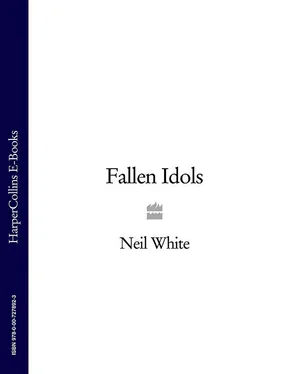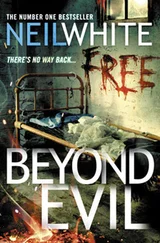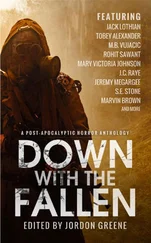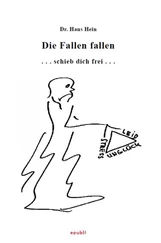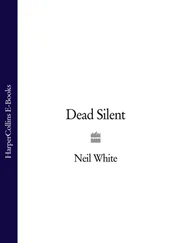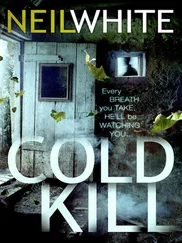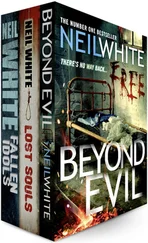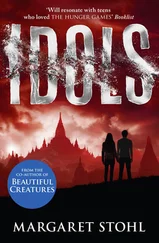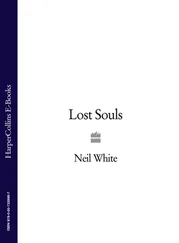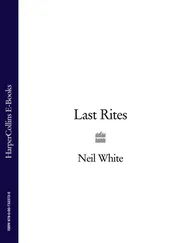Sophie began to sob, could feel herself shaking, her head back. All she could see now was the ceiling, brilliant white, flashes of blue getting brighter as the noise of sirens came in through the open window. She could hear footsteps, people running, some away from the shooting, some towards it.
Her breathing stopped as she felt the tip of the gun under her chin, turning her face towards Ben. A tear ran down her face until it rested on the dark muzzle. Sophie looked at Ben and saw terror in his eyes.
Ben was shuffling backwards to the wall. His shoulders were shaking as he sobbed. The buyer stepped over to him, then lifted his chin with the gun so that it was in front of Ben’s face.
‘Tears for you, or tears for her?’
The buyer stared down at him and then pulled at the tape around his mouth. Ben’s legs kicked in a silent scream of pain, the tape pulling hard on hairs, stretching his lips and taking soft flesh with it, flicking tiny drops of blood onto his chin. He looked down and grunted with pain, but it was cut short when the buyer thrust the gun into his mouth.
Ben didn’t have chance to even look up before the buyer pulled the trigger, Ben’s hair just blowing lightly where the bullet cut through on the way out of his head and into the wall behind. He slithered to the floor as blood began to gather around him.
Sophie tried to scream, tried to make the sound loud through the tape. It came out muffled, desperate. She felt the buyer grab at her shirt, her body jolted as the shirt was pulled open, the buttons scattered across the smooth wooden floor, spinning like dropped pennies. Her chest felt damp with sweat. She felt the muzzle run up and down her chest, cold and hard, and then nothing. When Sophie opened her eyes, she saw the gun, twitching in the buyer’s hand, inches from her. She looked up, into the eyes of her captor, saw cold blue, and then looked back to the gun.
Sophie sniffed back a tear, looked at Ben on the floor, saw the pool of blood gathering around his head, and then slowly lowered her head to the muzzle of the gun.
The buyer stepped back, surprised. Sophie looked up and then sat back. She closed her eyes and began to sob. She thought of her parents, wondered what they would do when they found out.
Her thoughts were cut short when she felt something go tight around her neck. It felt soft, silky, but it was pulled taut.
She gasped, her eyes wet with tears. Her chest choked for air, tried to gulp it down, but the airway was blocked by the tape, cut off by the silk. Her arms pulled at the tape on her wrists, tried to get free, tried to get to her neck, her survival instinct engaged, but the tape held firm.
Panic set in, made her thrash, but there was no escape. Her chest strained, she could feel her face burning red. She fought against it, but the room started to speckle monochrome as she tried to force air into her body. Her chest tried to burst; sound amplified, distorted, and then it began to fade, the room turning white.
The last sound she heard was her feet scuffling on the floor, louder than the sirens, louder than the screams outside.
Then she felt peace.
TWO
I was just finishing a beer when I heard the sound of footsteps outside, running, the sound of crying.
I looked round to the barman. He hadn’t seen anything, was too busy wiping glasses. I went to the door. People were running, looking shocked, hands over their mouths. I’d seen this once before, in 2005, on that awful July day, when Al Qaeda sent young men to the capital to blow themselves up and kill innocent people.
I grabbed someone’s arm, a young woman, chain-store clothes, her eyes scared and upset.
‘What’s happened?’
She stopped, bent double, panting. ‘Someone’s firing into the street.’
I looked back up the road. ‘Is anyone hurt?’
She nodded and wiped her eyes.
‘I saw a man on the floor, blood on his face.’
I turned away. I had all I needed. I didn’t wait to say goodbye, and when I looked back around, she had gone.
I thought I heard sirens. The Armed Response Team was on permanent standby in London and I wasn’t far from major terrorist targets. They would be here in no time and this would be as near as I would get. I saw it was getting busier ahead, the streets full of people getting away from the shooting. If there was anything in the story, the news agencies would get the official releases, the CCTV footage. I would have to feed on the scraps I could pick up here, something different. As I saw the crowd, the running, the panic, I knew I had the angle: the reaction of the people who had been there, the human story.
I pulled out my camera and set it to telephoto, squashing the spread of heads. As I took pictures, the tide kept on coming, some running, some walking. I saw a young family, a couple of children just under ten with an anxious young mother. She was panting, shaking, clutching her children tight. I got some pictures of the children. The first rule of journalism: always get the children.
All the time, their mother was talking. ‘We were just shopping, you know, just walking around. People around us ducked, like out of instinct, then there was a second shot.’ She waved her hand in the air, breaths short and panicky. ‘Then people started running.’ The woman straightened herself as if to emphasise her point. ‘Someone was shooting into the street.’
I tried to concentrate on the children, but all the time I was making mental notes of what she was saying. She had tears in her eyes when she said, ‘… and what about my children? A daytrip to town isn’t supposed to happen like that.’
I blinked. There was my line. I thanked her and set off again.
I didn’t get far before I realised how close I was to it. I could see the bob of police helmets, silver glints reflecting sunlight. They were pushing people back, away from the scene. The crowd was getting thicker, but as I pushed I was able to get to the door of my apartment building, not much more than a door squeezed between two shops. I ducked inside and rushed upstairs.
As soon as I got in, I went to the window. I could see a crowd of police around a man on his back. There was a dark patch on the pavement next to him, spreading into the cracks. He had his arms by his side, a funeral pose. He was in front of the Cafe Boheme, green awnings keeping the inside in shade, but I could see frightened faces looking out. Soho had always been a brave place, always done its own thing. This was the outside coming in, and people looked scared.
I lined up the body in my viewfinder, ready to start clicking, when I paused. There was something about the face which was familiar. I zoomed in, and when I did, I felt my hands go slick. I had something big.
I zoomed in close on his shattered head, his face blood-red, his cheeks sinking, hollow. I pulled back to put it into context, the deserted pavement littered with a body, napkins blowing against his ankles. I saw the faces in the Cafe Boheme looking at me, half of them hating me, the rest looking for an answer. I didn’t have one.
I heard a shout from the street below my window. I recognised it straight away. It was the police. My dad was a policeman, up in the frozen north. One thing he always told me was that if a policeman shouts at you to stop, you make sure you stop, because he’ll only ask once. And I knew I couldn’t get busy with my hands. I didn’t know if the armed unit had arrived yet, but they were only human. They would only get a pinprick of time to decide if the shine in my hands was a gun. If they decided wrong, I’d be dead.
I relaxed and looked down, nice and slow, my camera now slack in my hand.
‘Jack Garrett,’ I shouted. ‘I’m a reporter, freelance. I live here.’
As I held out the camera, I saw the policeman relax.
Читать дальше
